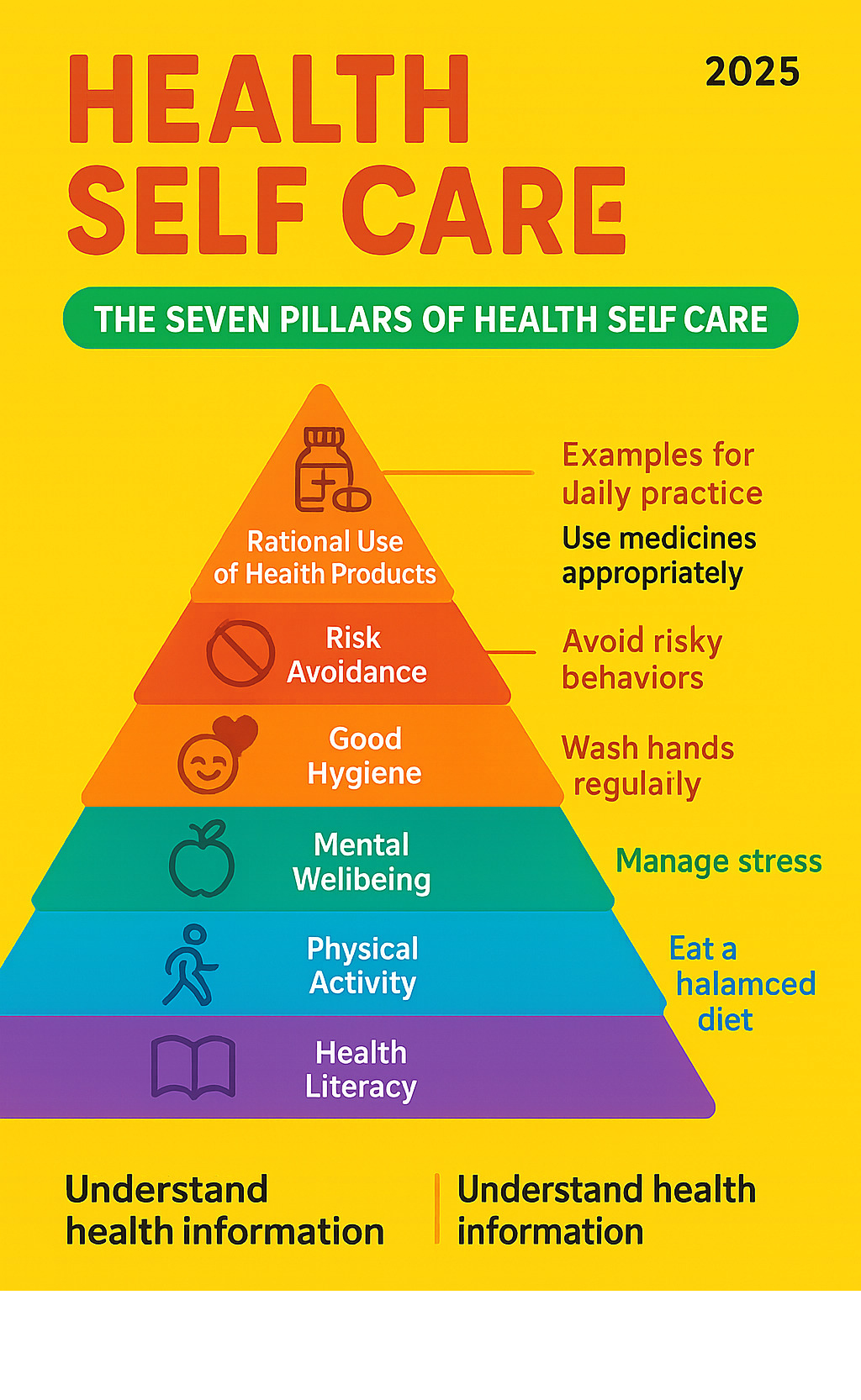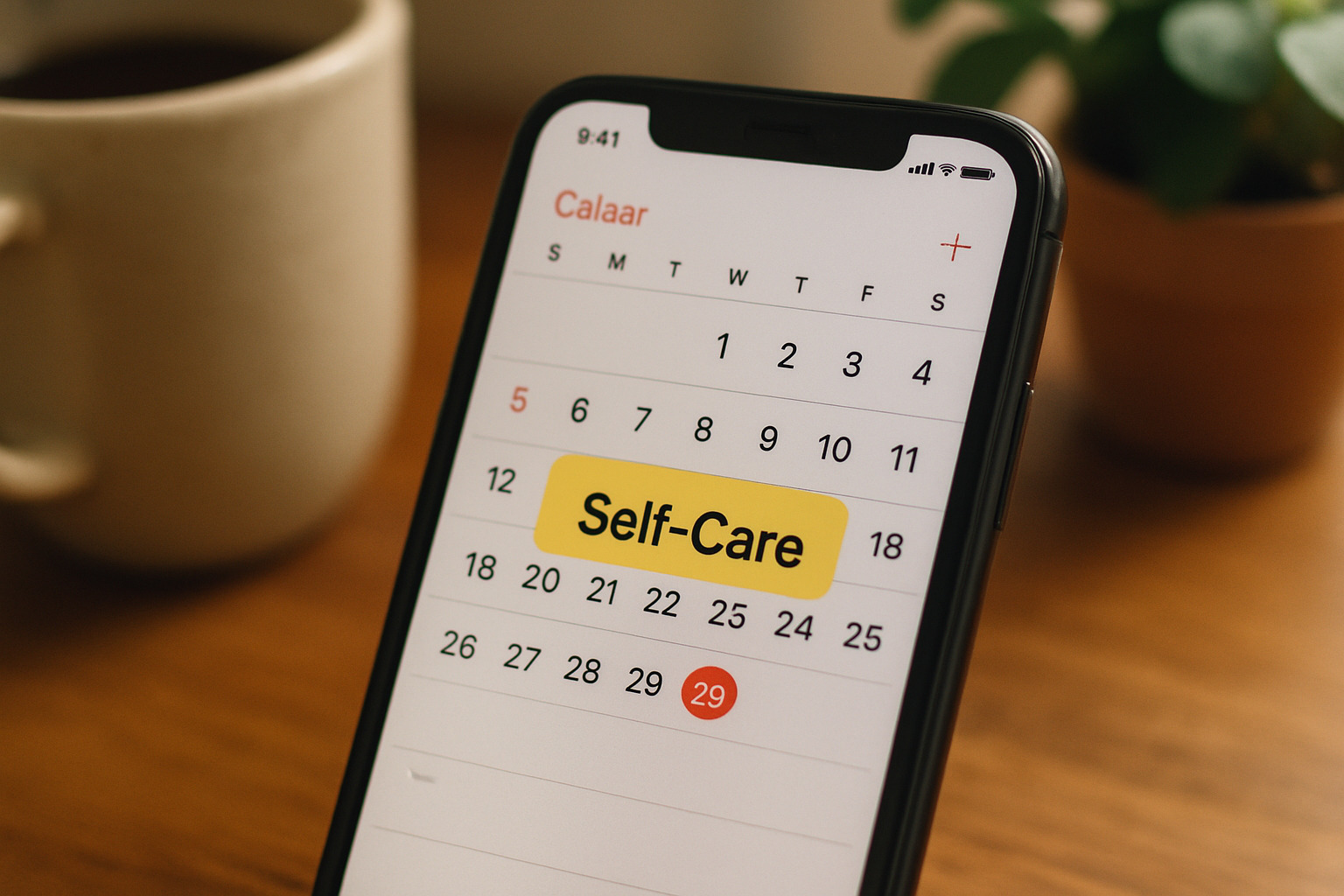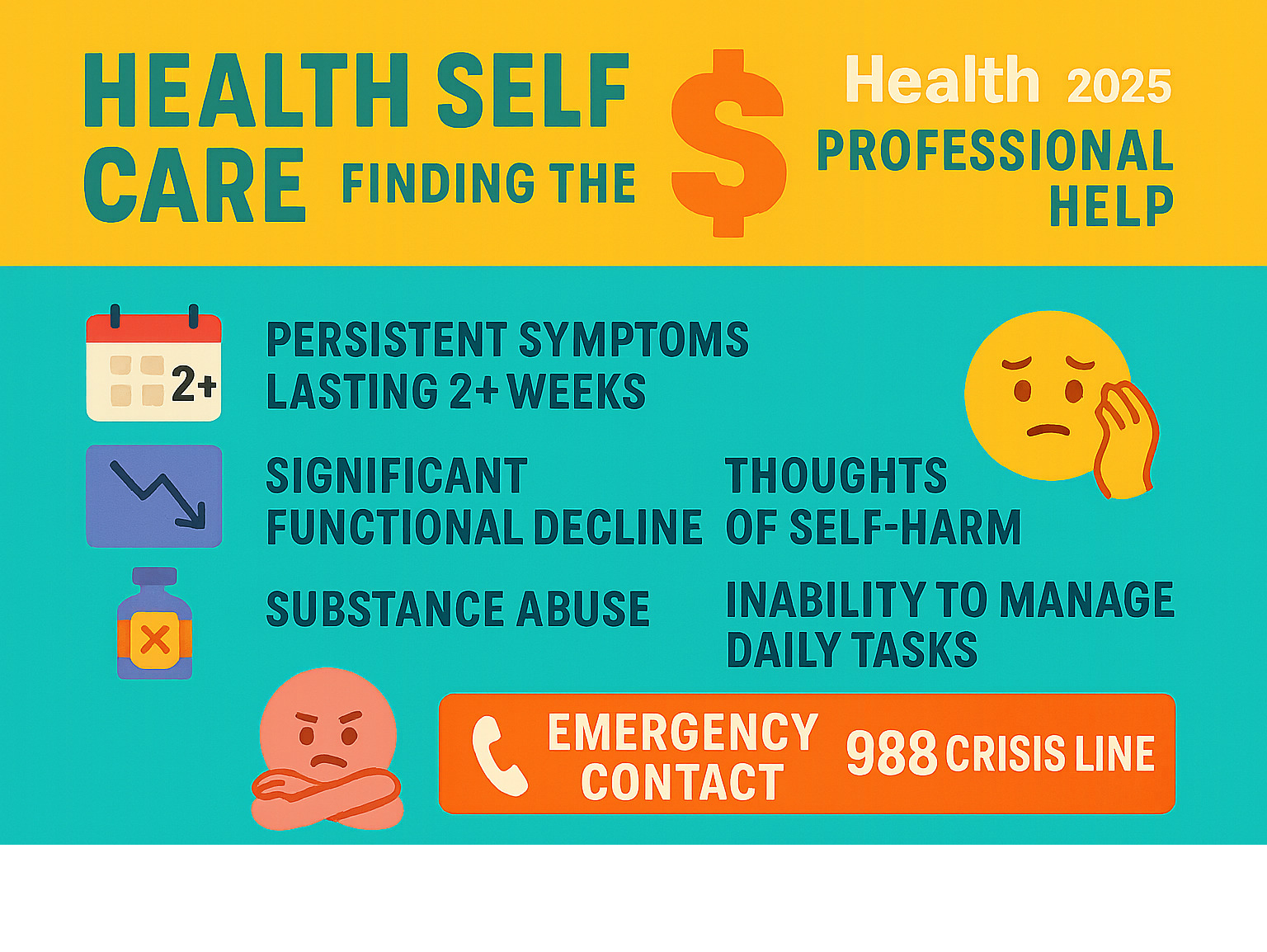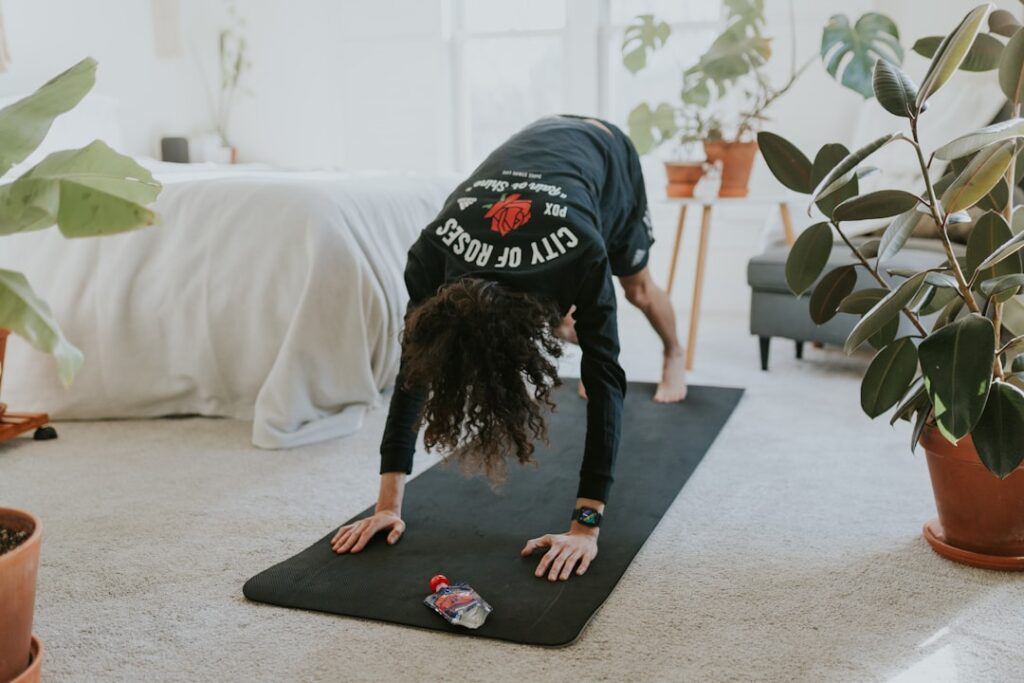Why Health Self Care Is Your Foundation for Wellness
Health self care is the ability of individuals, families and communities to promote health, prevent disease, maintain health, and cope with illness and disability with or without the support of a healthcare provider. According to the World Health Organization, this fundamental practice encompasses everything from daily habits like sleep and nutrition to managing chronic conditions and making informed health decisions.
Quick Answer for Health Self Care:
- Physical: Sleep hygiene, exercise, nutrition, personal hygiene
- Mental/Emotional: Stress management, mindfulness, therapy, journaling
- Social: Healthy relationships, community support, boundary setting
- Spiritual: Purpose-driven activities, meditation, nature connection
- Financial: Budgeting, healthcare planning, insurance management
The numbers tell a powerful story. Currently, 3.6 billion people – half the world – lack access to essential health services. Yet research shows that an estimated 70% to 95% of all illnesses are managed without doctor intervention through self-care practices.
For eco-conscious professionals like you, health self care isn’t just about personal wellness. It’s about creating sustainable routines that support both your body and the planet. Regular physical activity alone could prevent 3.9 million premature deaths each year globally.
But here’s what many people get wrong: health self care isn’t selfish or expensive. About 44% of consumers believe self-care requires lots of time, while 35% think it’s only for those with money. The truth? Simple daily practices – like drinking enough water, taking a 15-minute walk, or practicing gratitude – can transform your health without breaking the bank.
This guide will show you how to build a sustainable self-care routine that fits your busy life, aligns with your values, and creates lasting wellness from the inside out.

Health self care terms at a glance:
What Is Self-Care? Foundations & Pillars
The World Health Organization defines self-care as “the practice of individuals looking after their own health using available knowledge and information.” Think of self-care for health and well-being as being your own best friend – the kind who reminds you to drink water, encourages breaks, and helps you make choices that feel good both now and later.
Health self care isn’t just bubble baths and face masks. It’s built on seven solid pillars that work together:
Health literacy means understanding your body’s signals and knowing how to find reliable health information. Mental wellbeing covers everything from managing daily stress to recognizing when you need extra support. Physical activity doesn’t mean becoming a gym enthusiast – it’s about finding movement that makes you feel alive.
Healthy eating is about nourishing your body with foods that give you energy. Risk avoidance involves making smart choices about things like sun exposure, alcohol, and safety habits. Good hygiene includes basic practices that keep you healthy and feeling fresh. Finally, rational use of products means being thoughtful about medicines, supplements, and health tools.
The beautiful thing about these pillars is that they support each other. When you get better sleep, you naturally have more energy for physical activity. When you manage stress well, you tend to make better food choices.
Why Self-Care Is Important becomes clear when you realize this isn’t about perfection – it’s about building self-management skills and creating autonomy over your health decisions.
From Illness Treatment to Everyday Wellness
Traditional healthcare often feels like calling the fire department after your house is already burning. Health self care is more like having good smoke detectors and keeping a fire extinguisher handy. It’s about disease prevention, learning to recognize early warning signs, and using medicines wisely when you need them.
Instead of ignoring fatigue until you’re exhausted, you might look at your sleep patterns, stress levels, or recent diet changes. Rather than waiting until you’re overwhelmed, you might build daily practices like deep breathing or short walks into your routine.
The goal isn’t to become your own doctor, but to become an informed, proactive participant in your health journey.
Why Health Self Care Matters for Body, Mind & Community
Here’s a sobering reality: 100 million people are pushed into poverty each year simply because of healthcare costs. When you take that morning walk, choose a nourishing breakfast, or practice deep breathing, you’re contributing to community health and reducing strain on healthcare systems worldwide.
Every time you prevent a health issue through self-care, you’re keeping resources available for someone who truly needs emergency care. But the personal benefits are amazing too. Health self care builds resilience in ways that might surprise you. When you’re consistently taking care of your physical and mental health, you bounce back faster from stress and show up as your best self in relationships.
The NIH Wellness Toolkits highlight how individual wellness practices create ripple effects. When you’re well-rested and emotionally balanced, you’re more patient with your kids, more creative at work, and more present with friends.
Research shows that effective health self care practices could prevent 3.9 million premature deaths annually. That’s not just about living longer – it’s about living better and helping create a world where everyone has access to wellness.
Science-Backed Benefits
The research on health self care is compelling. People who maintain consistent self-care routines experience remarkable changes in their overall quality of life.
Lower chronic disease risk is one of the most significant benefits. Regular physical activity combined with healthy eating can slash your risk of heart disease, diabetes, and certain cancers by up to 80%.
Improved mental health follows closely behind. Daily mindfulness practices can reduce symptoms of anxiety and depression by 30-60%. Many people find this more effective than they expected.
Your relationships get stronger too. People who practice self-care consistently report higher relationship satisfaction and better communication skills. When you’re taking care of your own emotional needs, you have more capacity to be present with others.
Productivity gains are another bonus. Well-rested, physically active individuals show 13% higher productivity at work. Taking breaks and caring for yourself actually makes you more efficient.
You don’t need to transform your entire life overnight. Small, consistent actions compound over time. Start with one aspect of health self care that feels manageable, and build from there.
The Main Types of Health Self Care & Practical Examples
Think of health self care as having six different tools in your wellness toolkit. You’ll reach for different types of self-care depending on what you need most on any given day.
Physical self-care is your foundation – honoring your body’s basic needs. This means getting 7-9 hours of sleep each night with a consistent bedtime routine. Movement becomes your daily medicine, whether that’s a 30-minute walk or dancing in your living room. Nutrition doesn’t have to be complicated – focus on whole foods, drink plenty of water, and practice mindful eating. Basic hygiene counts too.
Mental and emotional self-care nurtures your inner world. This might look like taking five deep breaths when overwhelmed, or setting boundaries to protect your mental energy. Journaling becomes a powerful tool – even scribbling down three things you’re grateful for each day can shift your perspective. Finding hobbies that bring genuine joy isn’t selfish; it’s essential maintenance for your mind.
Social self-care recognizes that humans are wired for connection. This means spending quality time with people who lift you up, joining communities aligned with your interests, and practicing healthy communication. It also means knowing when to take breaks from toxic relationships or endless social media scrolling.
Your spiritual self-care connects you to something bigger than your daily to-do list. This could be meditation, spending time in nature, or volunteering for causes that matter to you. It’s about exploring your values and finding meaning in everyday life.
Financial self-care might seem unrelated to wellness, but money stress takes a real toll on your physical and mental health. Creating and following a budget, building an emergency fund, and understanding your health insurance all contribute to your overall wellbeing.
Environmental self-care considers how your surroundings affect your health. This means creating clean, organized living spaces that feel peaceful, choosing non-toxic products, and spending time outdoors for fresh air and vitamin D.
| Practice Type | Daily (5-15 min) | Weekly (30-60 min) | Monthly (1-2 hours) |
|---|---|---|---|
| Physical | Walk, stretch, hydrate | Meal prep, deep cleaning | Health checkups, new recipes |
| Mental/Emotional | Breathing, gratitude | Journaling, hobby time | Therapy, goal review |
| Social | Text a friend, family dinner | Social activities, calls | Relationship check-ins |
| Spiritual | Meditation, nature | Volunteer, reflect | Retreat, value assessment |
| Financial | Track expenses | Budget review | Financial planning |
| Environmental | Tidy space, fresh air | Deep clean, organize | Declutter, eco-swaps |
Physical & Mental Dimensions of Health Self Care
Physical self-care starts with sleep hygiene. Keep your bedroom cool (around 65-68°F), dark, and quiet. Try to avoid screens for at least an hour before bed, and stick to consistent sleep and wake times. Your body craves routine more than you might think.
Movement doesn’t require a gym membership. Research shows that about 7,500 steps daily gives you longevity benefits without needing to become a fitness fanatic. This could be taking the stairs, parking farther away, or having walking meetings. Find movement that feels good to you.
For nutrition, the Mediterranean diet pattern offers a simple framework: plenty of vegetables, fruits, whole grains, lean proteins, and healthy fats. Stay hydrated with around 60-62 ounces of water daily, and limit processed foods. Think of eating foods that your great-grandmother would recognize.
Mental and emotional self-care often gets pushed aside when life gets busy, but it’s equally crucial. Simple Self-Care for Therapists offers techniques that work for everyone. Start with 15-30 minutes daily dedicated to activities that nourish your mind.
Journaling doesn’t have to be elaborate. You could write three things you’re grateful for each day, or track your mood and energy levels to identify patterns. This helps you understand what triggers stress and what activities boost your wellbeing.
Spiritual, Social & Financial Health Self Care
Spiritual self-care isn’t about finding religion – it’s about connecting with your sense of purpose and meaning. This might involve spending time in nature, practicing meditation, or engaging in volunteer work that aligns with your values.
Social self-care requires intentionality in our hyper-connected world. Quality relationships matter more than quantity – it’s better to have a few deep, supportive friendships than many superficial ones. Practice saying no to social obligations that drain your energy.
Financial self-care often gets neglected, but money stress significantly impacts your physical and mental health. A 2022 study found that financial literacy predicts happiness better than income level. Start by tracking your expenses for one week, then create a simple budget that includes healthcare and wellness expenses.
Beauty and Self-Care intersect beautifully when you choose clean, non-toxic products that support both your health and environmental values. This is environmental self-care in action.
Quick-Start Checklist
Five-minute practices that fit into any schedule include deep breathing exercises using the 4-7-8 technique, writing down three things you’re grateful for, doing gentle stretches at your desk, tidying one small area of your home, or sending a quick text to check in with a friend.
Low-cost ideas prove that self-care doesn’t require a big budget. Visit your local library for books, follow YouTube workout videos, take nature walks, use free meditation apps like Insight Timer, or attend community events.
Outdoor breaks can transform your day with minimal effort. Try eating lunch outside, taking phone calls while walking, gardening, watching the sunrise or sunset, or practicing earthing by walking barefoot on grass.
App suggestions can support your journey: Sleep Cycle for sleep tracking, Headspace or Calm for meditation, Nike Training Club for fitness, MyFitnessPal for nutrition awareness, and Daylio for mood tracking.
Making Health Self Care a Daily Habit

Building lasting health self care habits doesn’t require a complete life overhaul. The secret lies in the Japanese philosophy of Kaizen – making tiny, consistent changes that compound over time. Think of it like planting seeds rather than trying to grow a full garden overnight.
Start ridiculously small. Want to exercise more? Don’t commit to hour-long gym sessions. Instead, do five minutes of stretching each morning. Once that feels as natural as brushing your teeth (usually takes 2-3 weeks), add another five minutes. This approach works because it bypasses the resistance our brains create when faced with big changes.
Treat self-care like any other important appointment. Time blocking is your friend here – literally schedule your wellness activities in your calendar. Your Monthly Self-Care Planner + Printable Wellness Tracker can help you visualize and commit to these moments throughout your month.
SMART goals transform vague intentions into concrete actions. Instead of “I’ll exercise more,” try “I’ll walk for 20 minutes after lunch three times this week.” Make it specific (20-minute walk), measurable (three times), achievable (walking vs. marathon training), relevant (fits your schedule), and time-bound (this week).
Digital detox plays a crucial role in modern self-care. Create phone-free zones in your bedroom and during meals. Use your device’s “Do Not Disturb” settings to protect your self-care time from constant notifications.
Consider creating a coping toolkit – a collection of items that help during stressful moments. This might include essential oils, your favorite calming tea, inspirational quotes, emergency contact numbers, or a playlist of soothing music.
Busting Common Barriers
“I don’t have time” tops the list of self-care excuses, yet only 6.7% of U.S. adults currently practice daily health self-care. Here’s the truth: you have the same 24 hours as everyone else. The difference lies in priorities, not time availability. Start with just five minutes daily and watch how that small investment grows.
Guilt often creeps in, especially if you’ve been taught that self-care is selfish. Let’s flip this script: taking care of yourself actually enables you to better care for others. Remember the airplane safety demonstration – put your own oxygen mask on first.
The expense myth keeps many people from starting. While Instagram might showcase expensive spa treatments, the most effective self-care practices cost little or nothing. Sleep, water, movement, fresh air, and human connection – these powerful tools are already available to you.
Cultural norms might discourage self-care, especially in communities that prioritize others’ needs above personal wellbeing. But modeling healthy self-care teaches others, especially children, that their wellbeing matters too.
Skill gaps are completely normal. We’re not born knowing how to manage stress or eat well. Be patient with yourself as you learn. Seek out reputable resources, consider working with professionals when needed, and remember that everyone starts somewhere.
Partnering With the Healthcare System
Health self care works best when it complements professional healthcare rather than replacing it. Home monitoring of blood pressure, blood sugar, or other health markers can provide valuable data for your healthcare team. Keep a simple log of symptoms, energy levels, and how different self-care practices affect you.
Stay current with vaccinations and recommended screenings based on your age and risk factors. When preparing for medical appointments, write down questions and bring your self-care logs to share with your provider.
Consider asking for an “integrative health” or “lifestyle medicine” consultation during your next visit. Many providers now recognize the importance of addressing lifestyle factors alongside medical treatments.
The key is finding the right balance between taking charge of your health and knowing when to seek professional help. This partnership creates the strongest foundation for long-term wellness.
Health Self Care vs Professional Help: Finding the Balance

Health self care isn’t meant to replace your doctor, therapist, or other healthcare professionals. Think of it more like a dance partnership – you and your healthcare team working together, each bringing something valuable to the table.
The tricky part is knowing when your self-care toolkit needs backup. Your body usually gives you clear signals when it’s time to call in the professionals.
Red-flag symptoms that deserve immediate professional attention include persistent sadness or anxiety that hangs around for two weeks or more, significant changes in your sleep or appetite that mess with your daily life, and any thoughts of self-harm or suicide. If you’re struggling to manage your usual responsibilities despite your best self-care efforts, that’s another clear sign you need additional support.
Physical symptoms matter too. When that nagging pain doesn’t respond to rest, gentle movement, or other basic self-care measures, it’s time to get it checked out. The same goes for substance use that’s increasing or causing problems in your relationships or work.
The 988 Suicide & Crisis Lifeline is available 24/7 for anyone experiencing emotional distress. Calling doesn’t mean you’re weak – it means you’re smart enough to reach out when you need help.
For chronic conditions like diabetes, depression, or high blood pressure, health self care works beautifully alongside professional treatment. You might check your blood pressure daily at home while also taking prescribed medications and seeing your doctor regularly. This is shared decision-making at its best.
Wellness Practice Tips can help you weave professional recommendations into your daily routine without feeling overwhelmed. The key is finding what works for your schedule, your budget, and your personal preferences.
When to Move Beyond Self-Care
Sometimes self-care feels like trying to fix a leaky roof with a band-aid. You’re doing everything “right” – eating well, exercising, managing stress – but something still feels off. This isn’t a personal failure; it’s valuable information.
Persistent distress that doesn’t budge after several weeks of consistent self-care efforts suggests you need additional tools. Just like you’d see a dentist for a toothache that won’t quit, mental health symptoms deserve professional attention when they stick around despite your best efforts.
Declining function in your work, relationships, or daily activities is another clear signal. If you’re struggling to show up for the people and responsibilities that matter to you, even with solid self-care practices in place, it’s time to expand your support team.
Complex medical needs definitely require professional coordination. If you’re managing multiple health conditions, taking several medications, or have a family history of serious illness, working with healthcare providers helps ensure your self-care plan is both safe and effective.
Seeking professional help often makes your self-care more effective, not less important. A good therapist might teach you new coping strategies, or a nutritionist might help you fine-tune your eating habits. Professional support improves your ability to take care of yourself rather than replacing it.
The goal isn’t to handle everything alone – it’s to build a complete support system that includes both your own daily practices and professional expertise when you need it.
Frequently Asked Questions about Health Self Care
What are the core pillars of health self care?
The seven core pillars form the foundation of effective health self care, but here’s the good news – you don’t need to master them all at once. Think of them as different rooms in your wellness house that you can furnish over time.
Health literacy comes first – understanding how to make informed decisions about your wellbeing. Mental wellbeing involves managing stress and emotions in healthy ways. Physical activity doesn’t mean becoming a gym rat; it’s about moving your body regularly in ways you enjoy.
Healthy eating focuses on nourishing your body with whole foods rather than following restrictive diets. Risk avoidance means making smart choices about things like alcohol, tobacco, and safety. Good hygiene covers the basics that prevent illness and help you feel fresh. Finally, rational use of health products ensures you’re using medicines, supplements, and wellness tools safely and effectively.
Start with whichever pillar feels most manageable right now. Maybe it’s drinking more water (healthy eating) or taking a 10-minute walk after lunch (physical activity). Once that feels natural, you can add another pillar to your routine.
How much time should I dedicate daily to health self care?
Here’s where many people get stuck – they think health self care requires hours of daily commitment. The truth is much more encouraging. Research shows that 15-30 minutes daily can make a significant difference, but many self-care practices weave seamlessly into your existing routine.
Consider this: practicing gratitude while you brush your teeth takes zero extra time. Taking the stairs instead of the elevator happens during your normal commute. Doing three deep breaths before checking email can transform your morning without adding a single minute to your schedule.
The magic happens through consistency, not duration. Five minutes every single day beats an hour-long wellness session once a week. Your body and mind respond better to regular, gentle care than sporadic intense efforts.
Start small and build gradually. If you’re currently doing nothing, commit to just five minutes daily. Once that feels automatic (usually after 2-3 weeks), you can expand to 10 minutes, then 15, and so on.
Can health self care replace my doctor?
This is one of the most important questions, and the answer is a clear no – but not for the reasons you might think. Health self care isn’t meant to replace professional healthcare; it’s designed to make your healthcare more effective and your life healthier between medical visits.
Think of it this way: while 70-95% of minor health issues can be managed through self-care practices, you still need your healthcare team for screenings, vaccinations, complex conditions, and serious symptoms. The goal is partnership, not replacement.
When you practice regular self-care, you actually become a better patient. You arrive at appointments with valuable information about your symptoms, lifestyle patterns, and what treatments work for you. You can have more informed conversations with your doctor about prevention and treatment options.
The sweet spot is using self-care to maintain your health and catch small issues early, while relying on professional care for diagnosis, treatment of serious conditions, and guidance on complex health decisions. Your healthcare providers can also help you create a self-care plan that’s safe and appropriate for your specific health needs.
Seeking professional help when you need it is actually a form of self-care – it shows you’re taking responsibility for your wellbeing in the smartest way possible.
Conclusion
Your health self care journey is a lifelong trip, not a one-time project. Start small—maybe a consistent bedtime, a five-minute walk after lunch or noting three things you’re grateful for. Those modest actions compound over months into measurable improvements in energy, mood and resilience.
Self-care isn’t selfish; it allows you to show up fully for the people and projects that matter most. Some days you’ll hit your routine perfectly, other days you’ll manage only the basics. Both are fine—what counts is returning to the practice.
At Beyond Beauty Lab we believe true wellness goes deeper than quick fixes. Our Wellness and Self-Care hub is packed with resources to help you keep building habits that nourish your mind, body and skin.
Your future self will thank you for the choice you make today. What tiny act of self-care can you fit in right now? You’ve got this.








